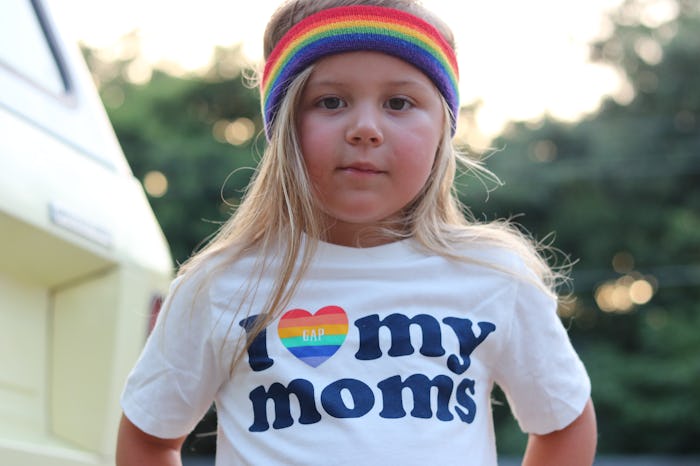Life

Be Kind, My Daughter, But Not At The Expense Of Your Voice & Power
Take one step into the kid’s clothing section at any big box store and you will undoubtedly see at least one shirt instructing our little heathens to be kind. “Being kind is cool!” “Kindness rules!” Honestly, I haven’t seen this much adherence to a single theme since we ran around in Hypercolor t-shirts like they were a uniform. We forward articles about teaching kids to be kind and every day we read stories about kindness that have gone viral: Kid makes a pretend college t-shirt and gets laughed at by his peers, so the grown-ups save the day by making a “real” version and gifting him a college scholarship! Stories of people’s kindness have become a drug that we need to feel good, and honestly I’m the addict watching the reveal videos on my phone with tears in my eyes. Kindness does rule! Being kind is cool!
And then. The most famous and beloved lesbian in the world (and a purveyor of acts of kindness as an occupation) stood before her audience and proclaimed that kindness, even friendship, between two people despite “differences” is the only thing that matters. These words referred to Ellen DeGeneres’ relationship with George W. Bush, whose words and actions toward the LGBT community during his presidency varied from demeaning to truly harmful. In other words, not Cowboys fan vs. Packers fan-type differences, rather: fundamental core values related to human rights-type differences.
This summer, at an LGBT-friendly children’s event at a public library, my partner and I had to politely walk away from MAGA hat-wearing protesters who followed us to our car yelling expletives while our daughter nervously clung to me.
I have to admit that (as the least famous but sufficiently beloved lesbian in the world), this not only made my temperature rise, it made me pause and consider the kindness messages I’ve been drilling into our 4-year-old. Because yes, while I want my daughter to be the kid who shares her toys, hugs her friends when they cry, and packs up a box of her toys to give to kids in need, I equally want her to stand up for what’s right, and to always, always advocate for herself and her rights. This part is more challenging to teach (and model), and there sure aren’t a lot of kid t-shirts slinging this virtue.
Ellen isn’t wrong that we could (and should) aspire to be a little more kind in our daily lives, but we should all be clear — including in messages to our children — about something that’s bigger than superficial differences: If someone has harmed or oppressed you, you don’t in any way, shape, or form owe them your kindness.
With two moms each possessing exactly zero chill in our love and adoration for her, my daughter’s differences are something that will always be proudly on display. This summer, at an LGBT-friendly children’s event at a public library, my partner and I had to politely walk away from MAGA hat-wearing protesters who followed us to our car yelling expletives while our daughter nervously clung to me. When these are the experiences that will undoubtedly litter her childhood, you’d better believe she will be taught that people spewing hatred and advocating for or condoning discrimination in any form don’t deserve her kindness. Or her smile. She (like Ellen) will always have the choice to extend that grace, but my job is to teach her that it’s not required. (I’m actually an optimist, though, so I choose to picture her generation as little warriors who won’t stand for the crap we put up with, and when they one day burn their old “Be Kind” t-shirts at a protest, I will be the proud mama adding to her overflowing iPhone photo album.)
Every single day before we frantically race out the door to get to school on time, my partner tells our daughter three things: Have a great day, be kind to others, and include everyone. But funny thing: as our babies grow up they start to vulnerably share the ways other kids or situations have hurt their feelings, squashed their spirit, or made them cry, and suddenly the parenting pep-talk is much more nuanced than the golden rule. Ellen’s words and the debate that followed serve as a wake-up call to reframe kindness as the default, yes, but also as something that isn’t mandatory.
Yesterday I found myself telling my daughter to be kind to everyone and “play with your friends that make you feel good and happy.” Because, I realize, that’s what her own moms have had to do in a time when some people claim to love and support our family, but whose actions and votes do exactly the opposite.